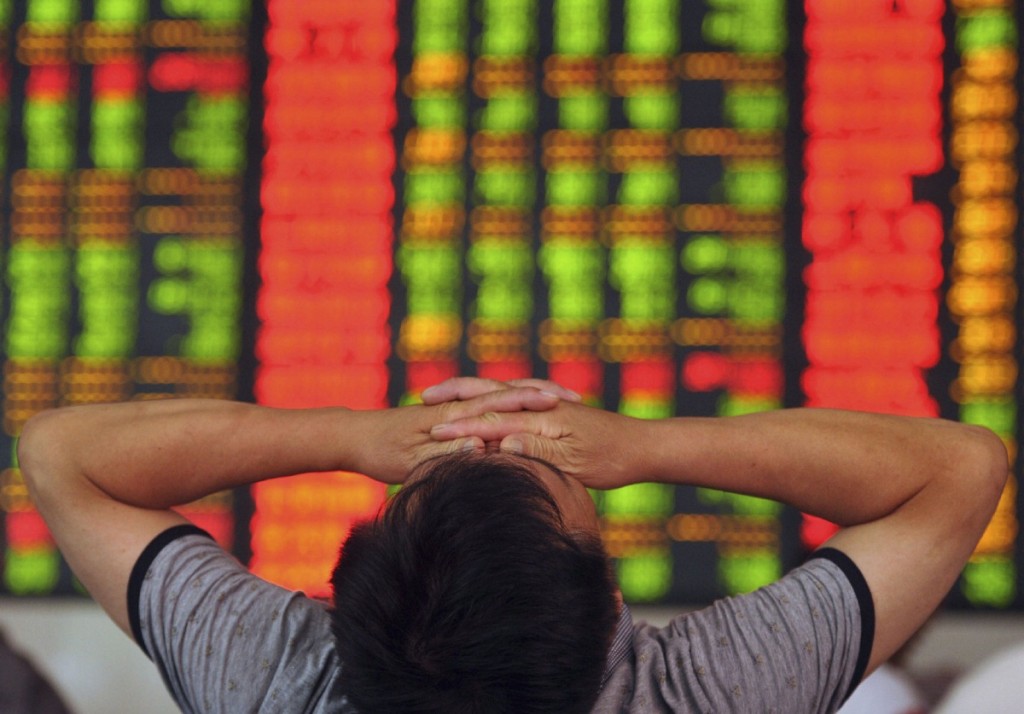
The Sunday Mail

By Ding Gang from People’s Daily
The Chinese economy, after years of brisk growth, seems to face a downturn, and needs to be rearranged. When its upward trajectory encounters resistance, the hackneyed saying comes out again – the Chinese economy is close to a tipping point.

Exaggerated crisis – picture from The Star.com
Jim Chanos, an American hedge fund manager and president of Kynikos Associates, asserted, as early as in 2009, the Chinese economy is in a bubble. “The man who got China right,” wrote The New York Times columnist Joe Nocera, “has been vindicated.” The magical bubble burst, argued many economists and China observers, which seems to have echoed David Shambaugh’s earlier sensational judgment over the coming Chinese crackup.
Why is the Chinese economy believed to be about to collapse whenever there are setbacks? A lot of bearish arguments by US media professionals and scholars, in fact, have mirrored the speakers’ deep-seated denial of China’s rise. This is the reason why Sino-US relations have witnessed so many ups and downs.
Incidents and twists might occur in China’s development. These twitches are very normal for such a large economy, which seeks a peaceful rise in just a century. In fact, there is no major power in history whose path was strewn with roses all the way. China is not an exception due to many uncertainties caused by geopolitical games and a large population keep simmering.
China’s timetable for its rise might be long, because the Chinese leadership has a clear understanding of the troubles and difficulties. It might go back and forth, and stagnate for a while. The most difficult part is how to figure out the right strategy to deal with a new situation.
Historically, Western powers sent their ships across the world when their economies reached a bottleneck at home. They exploited resources, plundered laborers and occupied markets in other countries by force. Terror and misery also accompany the rise of empires.
China has no intention of following the old path. It is rising on a new track, which has been proven in the past three decades. China seeks solutions to problems from within, releasing new impetuses for further development.
The past few months have seen China taking actions to stabilize the economy. Beijing is exploring new methods to deal with the new situation, and it is far from using up all its cards.
Some foreign experts do not have the perspective to analyze whether China’s system has been a major contributing factor to its dazzling economic performance in these years. They are just busy predicting when and how China collapses. It seems that from their strange perspective, turmoil is the destiny of the Chinese economy, while prosperity is abnormal.
The root cause for such thought is that China is not developing along the path they expected. Their way of thinking and notions about the Chinese economy are derived from their experiences and stereotypes. They are outdated, but they refuse to change.
The danger is, when policymakers or analysts pitch in and use the same notions and way of thinking to make their China policy, there is more room for miscalculation.
Frictions and disputes are unavoidable between China and the US. But what can be avoided is that when one side is in trouble, the other side uses its misfortune to show it is superior and right.
China won’t collapse, nor will the US go downhill day by day. However, subconsciously, we have placed both countries in a rivalry, in which two models of development are meant to engage in a fight and show the world which one is better. In fact, these two different models cannot be simply generalized as “good” or “bad.” On most occasions, they can co-exist. However, until we realize this, we are approaching a dangerous zero-sum game.
(Source: People’s Daily and Global Times The author is a senior editor with People’s Daily.)



